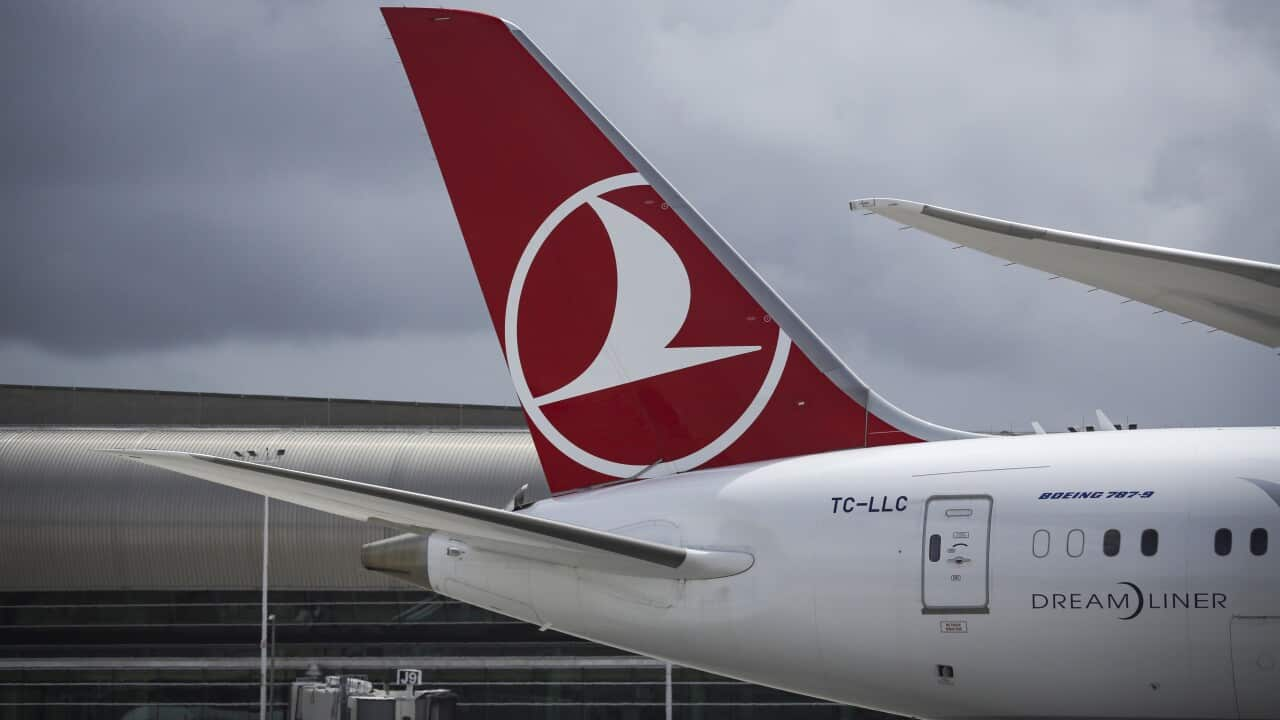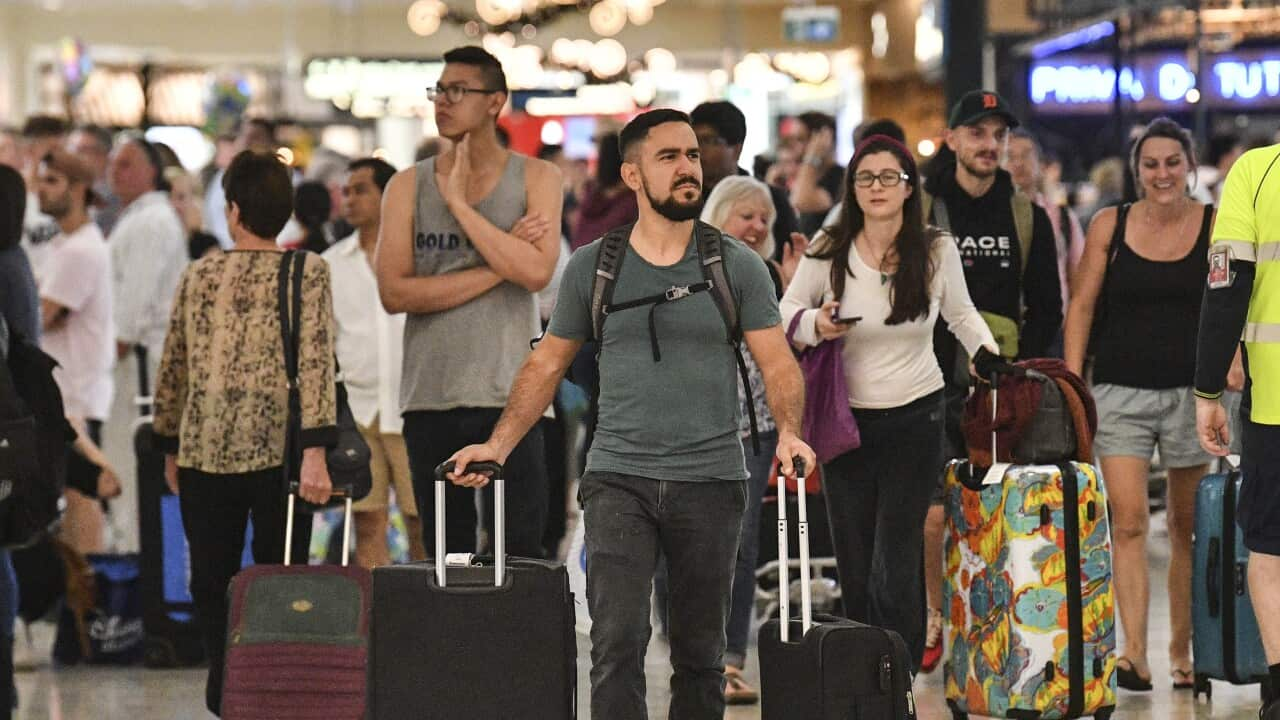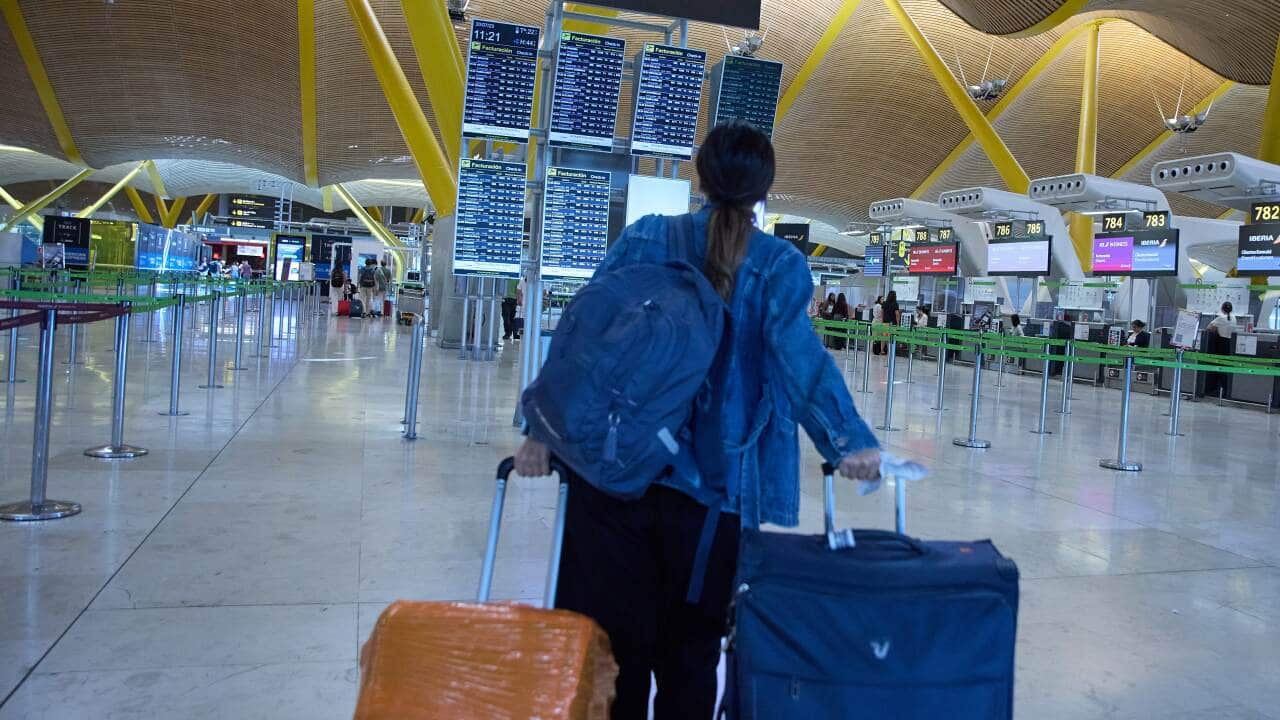Key Points
- By mid-2025, Turkish Airlines will be able to operate 35 weekly flights to and from Australia.
- The transport minister's denial of a comparable proposal from Qatar sparked controversy earlier this year.
- Some academics and industry figures hope it will result in lower airfares, but not everyone is convinced.
Turkish Airlines' Australian expansion is likely to be good news for travellers, industry figures and academics say, with the ramping-up of flights expected to result in lower airfares for consumers.
Transport Minister Catherine King last week signed off on a new agreement to increase the carrier's weekly allocation from seven to 35 by 2025.
Under the terms of the deal, Turkish Airlines can immediately fly 21 services per week to Sydney, Brisbane, Melbourne and Perth, before further increases take effect in 2024 and 2025.
The new agreement eclipses Qatar Airways' allowance of 28 flights to major airports and provides a significant alternative to the Gulf states and Singapore for air travel between Australia and Europe.
Flight Centre managing director Graham Turner said the move would drive down airfares to Europe and the United Kingdom as the industry was "desperate for more capacity through the Middle East and Asia".
"We worked out that when Qatar wanted another 28 flights, that it would probably have about a 15 per cent decrease in airfares, so we're hoping for a similar impact now that there will be more competition," he said.
Consumers should expect a "real price war" in the future, said Bojana Spasojevic, an interdisciplinary tourism and air transport management researcher from Queensland's Griffith University.
She said Turkish Airlines had placed a large order for Airbus planes - 150 A321s and 70 A350s, with an option for 135 more planes over the next decade - and we could expect to see direct flights between Istanbul and Australian cities in the second quarter of 2024.
In the meantime, it was likely to operate connecting flights to Europe through Singapore, with fares on that route slightly cheaper than one-stopover flights through Doha or Dubai operated by other airlines, she said.
But not all aviation experts are convinced the deal will necessarily drive down prices.
"More competition will usually mean that airfares go down, other things being equal. But in practice, other things are rarely equal," said Professor Greg Bamber, an aviation expert at Monash Universtiy.
"For example, currently, there are unpredictable wars involving two major oil-producing regions: Russia and the Middle East. This means that oil prices may increase, so, airlines may then increase their fares to try to recover increased oil prices. In short, we cannot be sure that airfares will go up or down, nor when."
It comes as the government flew into a barrage of criticism when it for extra services into Australia amid lobbying by Qantas.
Opposition transport spokeswoman Bridget McKenzie said the Turkish Airlines announcement showed the government continues to display preferential treatment and make aviation policy decisions with no transparency.
"The inconsistent decision to increase landing rights for other airlines raises further questions as to why the Albanese government denied Qatar Airways' request for additional flights earlier this year," Senator McKenzie said.

The Australian government denied an application by Qatar Airways for extra services in Australia earlier this year.
"This would assist many Australian businesses, mainly airports and tourism destinations to shape their strategies and negotiations around new air route development, as new routes cannot be established overnight," she said.
Under the agreement, Turkish Airlines has also been granted lucrative "fifth freedom of the air" rights, allowing the carrier to route flights between Australia and third-party countries.
A spokesperson for King said, "Türkiye is a new market for Australia. It had previously been granted seven flights a week but did not use them because that did not come with fifth freedom rights."
"The new arrangements with Türkiye will phase in an increase in available capacity for airlines from both countries over the next two years, including allowing for fifth freedom traffic rights for airlines of both countries. This will encourage the operation of services between our two countries for the first time.
"Australia and Türkiye share strong cultural, historical and people-to-people links, and aviation plays an important role in supporting these connections."
The spokesperson said King took into account future projections for the airline sector when making decisions on bilateral air services agreements.
"It is expected that global passenger traffic will return to pre-COVID-19 levels over the next twelve months as airlines announce new flights and returning capacity, and this additional demand will stimulate competition and encourage more competitive airfares on international routes."
Additional capacity was also granted to Vietnamese carriers, doubling their existing allocation to 77 weekly flights into major airports by 2025.
The government also struck new agreements with Canada, Chile, France, Hong Kong, Papua New Guinea, and the Solomon Islands.
SBS News has contacted Qatar Airways for comment.
What do we know about Turkish Airlines?
The company started its operations in May 1933 with five aircraft and fewer than 30 employees.
In April this year, Turkish Airlines announced a major 10-year strategic plan to double in size: to carry 170 million passengers and operate over 800 aircraft by 2033.
Ahmet Bolat, chairman of the board and the executive committee of Turkish Airlines, told World Finance magazine this year the company has one of the youngest fleets in the world, averaging out at 8.7 years across 376 aircraft.
Turkish Airlines also wants Australian actor Margot Robbie to promote its new flight route to Australia, with the star reportedly in negotiations with the airline to play a significant role in the upcoming campaign.
- Produced in collaboration with SBS Turkish. With additional reporting by the Australian Associated Press.











